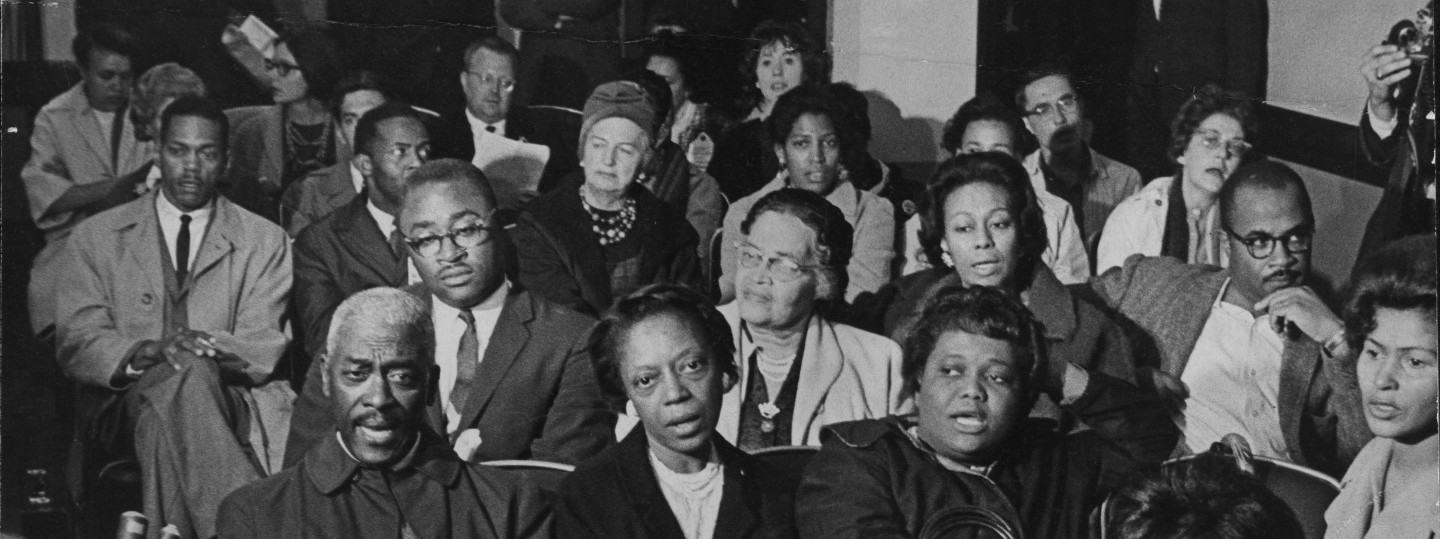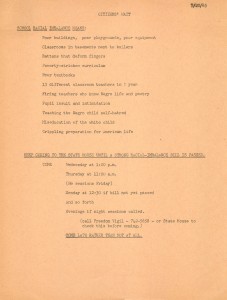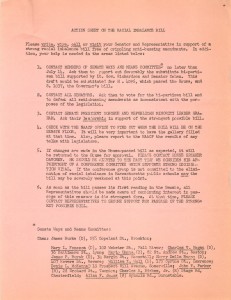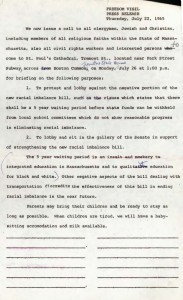With growing public awareness of school issues in the summer of 1963, legislation was proposed for a so-called Racial Imbalance Law by Senator Royal Bolling Sr. of Roxbury, but this first iteration died in legislature. Then, in 1964, Governor Endicott Peabody appointed a Racial Imbalance Advisory Commission, asking the committee to make a thorough, independent study of racial imbalance in the public schools of the Commonwealth. The Commission was to determine whether racial imbalance exists, and if so, to determine whether racial imbalance is educationally harmful, and if found harmful, to recommend ways of eliminating imbalance. This Commission found that there were 55 “racially imbalanced” schools in Massachusetts, and 45 of them were in Boston alone. The group proposed redistricting and “mutual transfers” that were relatively close so that children were not being bused across the city. The Commonwealth indicated that if such a program were created, it would be willing to pick up a substantial portion of the cost. However, the Boston School Committee refused to even discuss the idea. Below are a summary of the Commission’s findings and the School Committee’s response.
neu_rx914162kneu_rx914165d
By February 1965, the NAACP prepared to file a suit against the School Committee on behalf of parents. However, later that year, a version of Bolling’s 1963 bill was signed into law by Governor John Volpe. The bill allowed the withholding of state and federal funding from schools that failed to comply with its measures to end segregation. Below are various actions and ways that groups supported the passing of this Bill, lobbying in legislative hearings and gathering petition signatures among other actions.
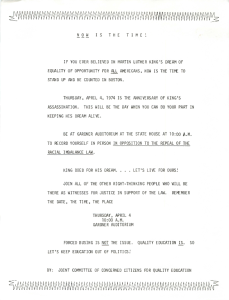
However, efforts advanced to weaken the Racial Imbalance Act by 1967. Multiple acts were proposed in the state legislature that attempted to repeal it, negate its coverage, or to limit its reach. In Boston, the School Committee issued a compliance plan in 1966 that did not meet the state standards, so efforts began to get the federal government to withhold funds. That year, there were 48 unbalanced schools in the district. In 1971, the State Board of Education (BOE) ordered the School Committee to alter its open enrollment policy in order to achieve racial balance. The BOE wanted Boston to allow transfers (busing) only if it was the sole solution to bettering balance, and it commanded the city to make a plan or lose funding. Ultimately, the city was unable to meet the BOE standards and funding was taken away.
